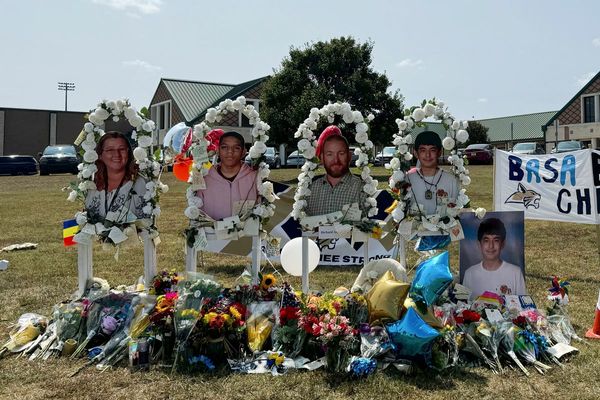More than 22,000 patients of Trinity Health of New England will have their medical debts erased after an agreement with RIP Medical Debt, a national nonprofit.
The total amount of erased debt totals $32.76 million, based on 22,300 individuals and 39,000 past-due accounts, according to a statement from Trinity Health. The relief does not include Medicare or Medicaid debts.
RIP Medical Debt acquires medical debts from financially burdened people and erases them, then notifies those affected in writing. RIP contracts with health care systems. Individuals cannot request RIP to erase their debts.
“Our Mission and Core Values call on us to care for the whole person — body, mind and spirit,” said Montez Carter, president and CEO of Trinity Health, in the statement. “High levels of medical debt challenge our past patients on all three levels.”
Carter said the partnership with RIP “allows us to relieve those patients of their medical debt to Trinity Health Of New England while recovering a portion of that debt to help us continue providing the care our patients and communities need in a responsible and sustainable manner.”
According to a Kaiser Family Foundation 2022 analysis of government data, it was estimated that “nearly 1 in 10 adults (9%) – or roughly 23 million people — owe medical debt,” and that this included “11 million who owe more than $2,000 and 3 million people who owe more than $10,000.”
Further, the foundation found, among racial and ethnic groups, “a larger share of Black adults (16%) report having medical debt compared to White (9%), Hispanic (9%), and Asian American (4%) adults.”
To have medical debt erased by RIP, patients must meet two criteria: individual or family income cannot be more than four times the federal poverty level, or the individual’s medical debt must be 5% or more of gross annual income. In 2022, the federal poverty guideline was $13,590 a year for an individual plus $4,720 for each additional family member.
RIP will not attempt to collect money from those whose debts are abolished, according to the statement.
“Working directly with providers like Trinity Health Of New England is an amazing win-win-win scenario,” said RIP President and CEO Allison Sesso in the statement. “Our valued hospital partner is compensated for some of the care it provided (without having to sell accounts to a debt collector), patients are relieved of the financial and emotional burden of debt they can’t pay, and communities are uplifted as a result.”
The top five counties affected are Hartford, New Haven and Tolland, in Connecticut; Hampden County, Massachusetts; and Litchfield, Connecticut, accounting for $27.1 million, according to the release. Debt in these counties accounts for $27.1 million of the total. Letters will be sent out starting this week but may take two months to reach all affected patients.
Unpayable medical debt is the leading cause of bankruptcy in the United States, with $195 billion owed, the statement says. Half of Americans could not pay an unexpected $500 medical bill.
The White House noted in February that the Consumer Financial Protection Bureau had released a report showing “the number of Americans with medical debt on their credit reports fell by 8.2 million from the first quarter of 2020 to the first quarter of 2022.” This was in part due to an increase in the number of Americans who were insured during this period, according to the White House.
In a separate complication of data based on polling, the Kaiser Foundation found what it termed “unequal consequences of health care debt are evident in the survey results.
“Among those with debt due to medical or dental bills, those with lower incomes and people of color (particularly Black adults), are more likely than their counterparts to report experiences like being contacted by collection agencies due to health care debt, being denied subsequent care, and making difficult sacrifices like changing their housing situation to pay down their debt,” the foundation reported.
Trinity Health of New England is composed of Saint Francis Hospital and Mount Sinai Rehabilitation Hospital in Hartford, Connecticut; Johnson Memorial Hospital in Stafford Springs, Connecticut; St. Mary’s Hospital in Waterbury, Connecticut; Mercy Medical Center, Mercy Rehabilitation Hospital and Brightside for Families and Children in Springfield, Massachusetts; and Trinity Health of New England Medical Group,
For more information, go to trinityhealthofne.org/rip-debt.







